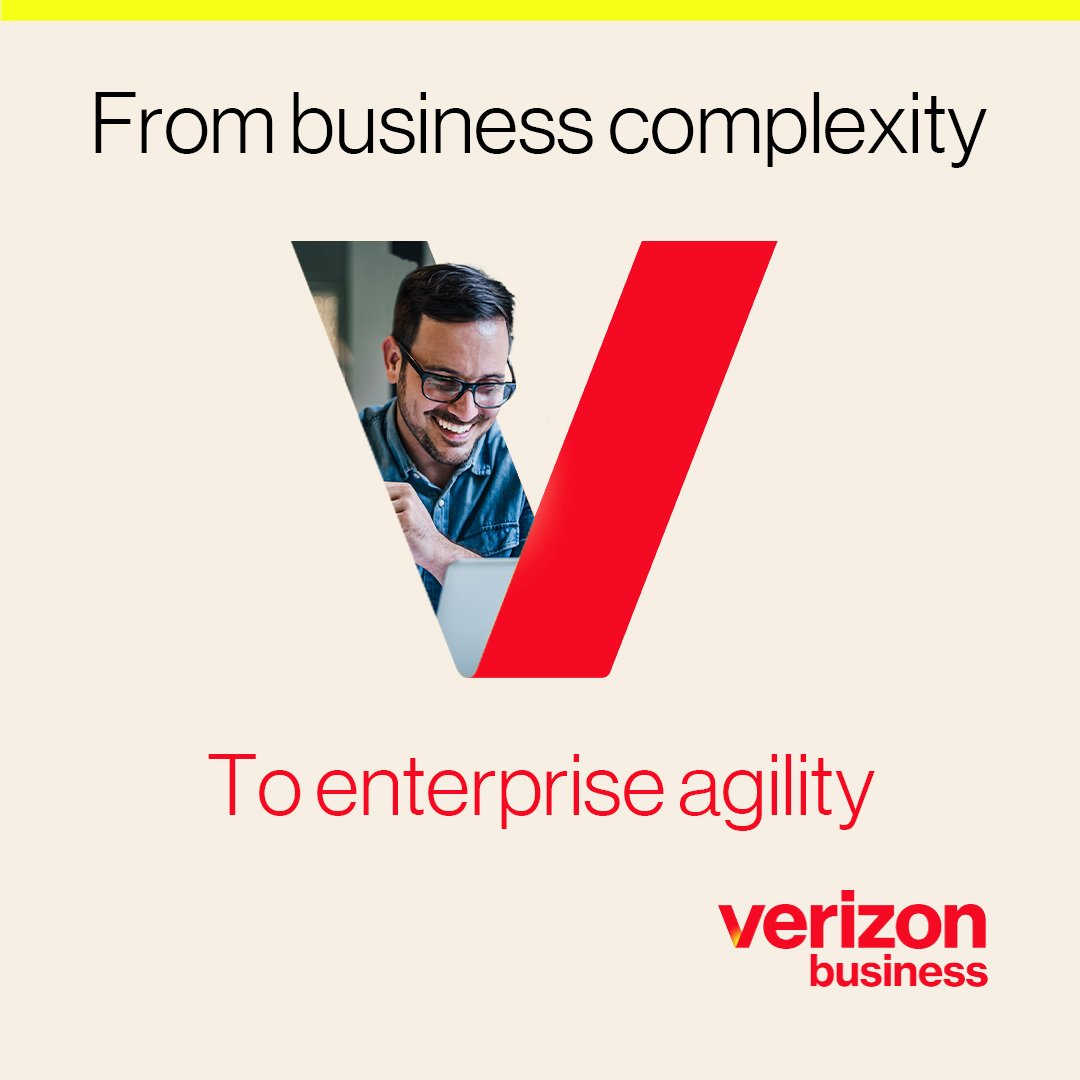Enterprises are embracing a new digital reality, defined by data-driven operations, decentralised workforces, and change. From AI and automation to IoT and cloud-native systems, business transformation hinges on one important foundation: the network.
Yet many organisations are constrained by legacy infrastructure that stifles innovation, introduces risk, and slows response times. Complex architectures, performance bottlenecks and security gaps can turn opportunity into operational burden.
Verizon Business helps enterprises overcome their limitations with a future-ready network approach – flexible, secure, and intelligently adaptive to business needs in near real-time.
Why traditional networks fall short
Conventional network infrastructure was not designed for the complexities of today’s digital environment. As organisations pursue cloud migration, adopt AI tools, and connect distributed teams and devices, legacy systems can struggle to provide the required scalability, visibility and control.
The challenges are technical and commercial. Delayed insights, degraded user experience, and exposure to cyber threats each have bottom-line impact.
“Digital transformation in APAC isn’t just accelerating – it’s diversifying. Businesses are adopting AI, cloud and IoT at different speeds and in different ways, but a common bottleneck is the rigidity of legacy networks,” says Duncan Kenwright, Managing Director, Global Solutions, APAC, Verizon Business.
“Systems were not designed to support dynamic, data-driven ecosystems. That’s where many enterprises are hitting limits – not just in performance, but in their ability to respond to opportunity.”
The adaptive network approach
Verizon’s network solutions reflect a change in philosophy, from static infrastructure to dynamic, intelligent connectivity. At the core is a fully converged, private IP backbone supported by one of the world’s few Tier 1 networks, which gives Verizon control over traffic routing, performance, and resilience.
Key capabilities include:
- Software-defined networking (SDN) for intelligent traffic management and policy enforcement,
- Network-as-a-Service (NaaS) for scalable, use-based consumption,
- Managed Network Services (MNS) that reduce operational overhead for IT teams,
- Secure Access Service Edge (SASE) to protect data and applications in distributed environments,
- Private 5G and edge computing for ultra-low-latency applications in manufacturing, healthcare, logistics and other industries.
With modular components, enterprises can tailor their networks for what they need now and in the future. This could be expanding a secure remote workforce, using AI for quality control in factories, or meeting compliance rules in different regions.
Turning infrastructure into advantage
By aligning network architecture with business objectives, Verizon can help organisations unlock measurable gains in agility, efficiency and customer experience.
- Improved agility: With programmable networks, businesses can respond quickly to changing market conditions, spin up services, or scale capacity with minimal disruption.
- Enhanced security: Verizon’s private backbone and embedded security controls reduce exposure to threats and help support zero-trust frameworks.
- Performance at scale: High-speed, low-latency connectivity supports mission-critical systems, from real-time analytics to robotic process automation.
“We’re helping our customers move from thinking of networks as infrastructure to seeing them as business enablers,” says Kenwright. “The right architecture gives enterprises the agility to pivot quickly, the security to operate confidently and the visibility to make informed decisions. In the AI era, that kind of adaptability is not a nice-to-have – it’s mission-critical.”
Built for APAC complexity
Asia Pacific enterprises face unique network demands, like multi-market operations, complex regulatory environments, and a range of infrastructure maturity. Verizon’s solutions are designed to overcome those challenges.
With operations in Australia, Singapore, Japan and beyond, Verizon provides:
- Regionally distributed infrastructure with global reach,
- Localised support for compliance, data sovereignty, and language,
- Sector-specific expertise in public sector, healthcare, financial services, and industrial operations.
For example, manufacturers deploying machine vision and AI need real-time feedback loops from production line to cloud platform. Verizon’s private 5G and edge solutions ensure data is processed where it’s generated to deliver precision, speed and quality control.
Supporting seamless transformation
Modernisation is usually a process, not a clean break with the past. Many businesses operate hybrid environments where legacy and modern systems need to coexist. Verizon’s network services are built with that reality in mind.
- Phased transformation: Verizon supports incremental upgrades, ensuring operational continuity while new technologies are integrated,
- Co-managed services: Organisations can rely on Verizon to maintain, monitor, and optimise networks while retaining strategic oversight,
- Cloud-native orchestration: Verizon’s platform simplifies network provisioning, scaling, and visibility, giving businesses more control and less complexity.
Flexibility lets enterprises evolve at their own pace, without compromising on performance or security.
Built-in security, end-to-end
Security is central to Verizon’s approach. With its private IP backbone, Verizon can isolate enterprise traffic from the public internet and maintain consistent performance even under pressure.
Core security features include:
- Near real-time threat detection and prevention
- Data loss prevention (DLP) and intrusion detection systems (IDS),
- Support for zero-trust network access and identity-based controls,
- Visibility into cross-border data flows to support compliance and reduce risk.
In a threat landscape where cyberattacks are automated and targeted, having security embedded in the network is essential, not optional.
Infrastructure that moves with you
Today’s business environment requires networks that are more than just fast. They have to be agile, intelligent and secure. Verizon’s adaptive approach lets enterprises establish a network backbone that evolves with their needs, turning challenges into opportunities, and fostering sustainable growth.
Whether your goals include scaling AI workloads, enabling edge analytics, or securing a hybrid workforce, Verizon provides the infrastructure to make it possible.
In an era when milliseconds are critical, your network should not merely keep pace – it should lead the way.
Learn how Verizon can help your business build an adaptive, future-ready network at: Verizon.com/business/en-au/solutions/adaptive-networks.







